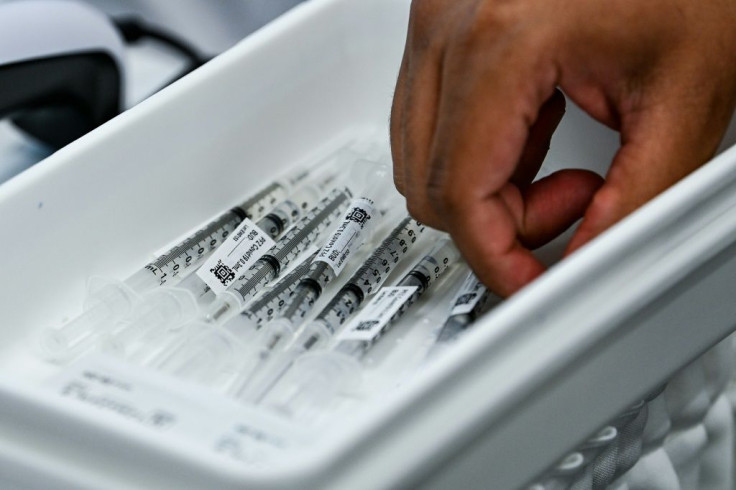Myocarditis Symptoms And Treatment: COVID Vaccine Side Effect CDC Is Investigating
KEY POINTS
- The CDC is investigating whether or not COVID-19 vaccines are linked to myocarditis following "dozens" of reports
- Myocarditis is an inflammation of the heart muscle and has symptoms such as chest pain and shortness of breath
- Doctors continue to encourage people to get vaccinated
The Centers for Disease Control and Prevention (CDC) is investigating whether there is a link between COVID-19 vaccines and myocarditis following reports of young people developing mild heart problems after vaccinations. Here's what everyone should know about myocarditis.
Myocarditis is an inflammation of the heart muscle. This is usually caused by a viral infection but can also result from an adverse reaction to a drug, according to Mayo Clinic. Myocarditis affects the heart's electrical system, reducing the organ's ability to pump. The inflammation could also cause arrhythmias or abnormal heart rhythms.
Its symptoms, according to WebMD, include shortness of breath, abnormal heartbeat, chest pain (sharp, stabbing pressure that may spread to neck and shoulders), painful, swollen joints and small amounts of urine.
Treatment of the condition typically includes prescription medicines such as ACE inhibitors, beta-blockers and diuretics. Rest, a low-salt diet and reduced activity will also likely be suggested by doctors, according to WebMD.
This healthy Kenmore 18 y/o developed #myocarditis 48 hrs after the 2nd Pfizer shot. Had to go to ER. Heart function way down.
— Deedee Sun (@DeedeeKIRO7) May 25, 2021
His family says while CDC is investigating if the vaccine is causing heart inflammation, people need to know the symptoms. A big one of his: chest pain. pic.twitter.com/MCKI9rGRQa
Evan Morud, an 18-year-old from Kenmore, Washington, was one of those who were diagnosed with myocarditis after getting vaccinated. According to Morud, he began experiencing symptoms such as chest pain 48 hours after getting his second dose of the Pfizer COVID-19 vaccine.
“I felt like my chest was really tight and my throat was really swollen up, like my lymph nodes and neck,” Morud told local news outlet KIRO, noting that he had “no medical record of any kind.”
According to his family, the teen’s heart rate was 140, which was about double the normal rate, and his heart function was “way down.”
Morud is only one of reportedly dozens of vaccinated individuals — primarily teenagers and young adults — who developed myocarditis, NBC News reported. The reports had prompted health authorities such as the CDC's vaccine safety group to look into the possibility of the vaccine being correlated with the heart problem.
Dr. John Lynch from the University of Washington School of Medicine said that although they are beginning to see a rise in cases of post-vaccine myocarditis, people should not jump to conclusions just yet.
“We are seeing some cases in Washington State that are happening after vaccination,” Lynch said. “But just like everything else, we know things are happening after vaccination that would’ve happened with or without that vaccine."
At this point, it is still too early to determine if the condition is actually a vaccine side effect, Lynch explained.
As for Morud, he said he still encourages people to get vaccinated, adding that he wanted to share his experience to let others be aware of symptoms to keep an eye on.
“I’m totally in favor of the COVID vaccine. I just want people to know what to watch for,” Morud said.

© Copyright IBTimes 2025. All rights reserved.





















